Exploring Meditation Techniques for Different Environments
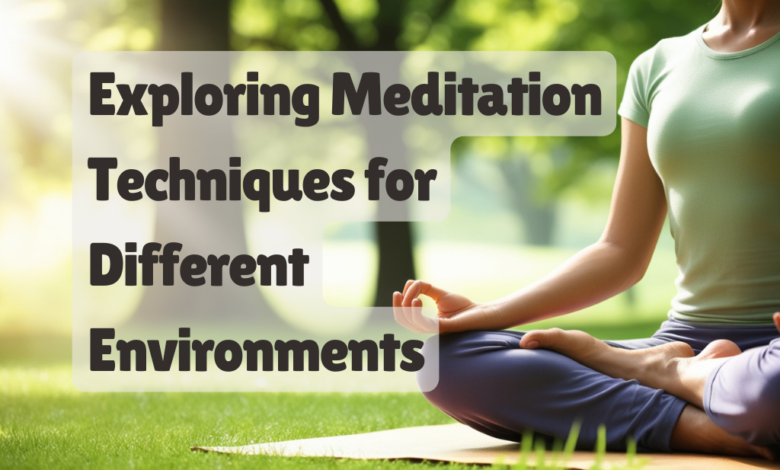
Meditation has long been recognized as a powerful practice to achieve mental clarity, reduce stress, and improve focus. While traditional meditation practices have laid the groundwork, adapting techniques to suit different environments and personal needs can elevate the experience. In this article, we’ll explore various meditation techniques, their benefits, and how they can be modified for diverse settings and purposes.
What Is Meditation?
Meditation is the art of focusing the mind to achieve inner peace and clarity. However, external environments and mental states can influence the process. Concentrating in today’s fast-paced, distraction-heavy world can be challenging, but with the right approach, meditation can help stabilize the mind and create mental space for better decision-making and self-discovery.
How Different Environments Affect Meditation
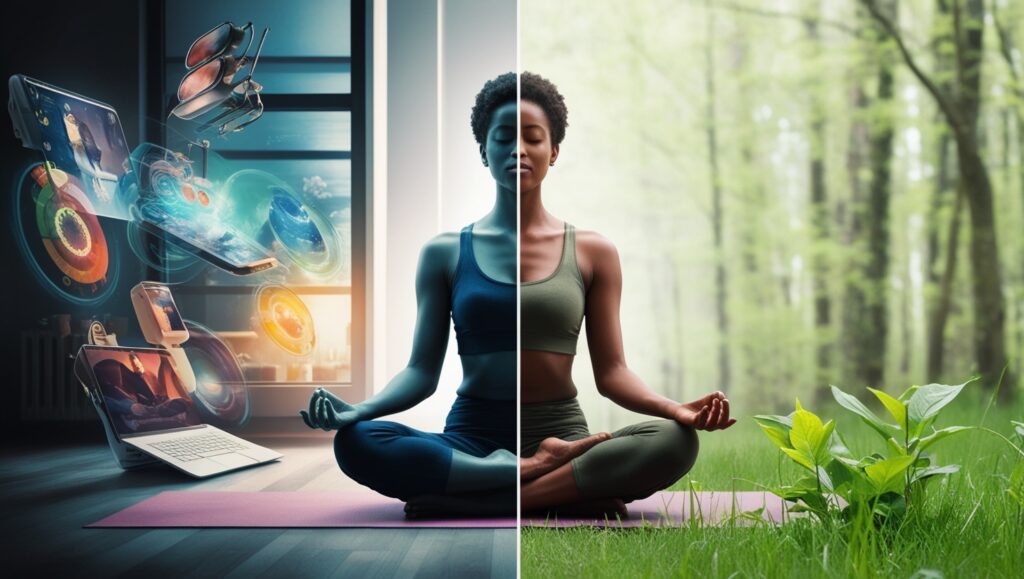
Meditation can produce different effects depending on the environment and the practitioner’s mindset. Factors such as mood, personality, and external distractions play a significant role.
- Positive Experiences: For some, meditation brings immediate calmness and mental clarity.
- Challenges: Others may find it uncomfortable initially, as restlessness or confusion can hinder the experience.
By tailoring meditation to the environment and your personal needs, you can unlock its full potential.
Popular Meditation Techniques
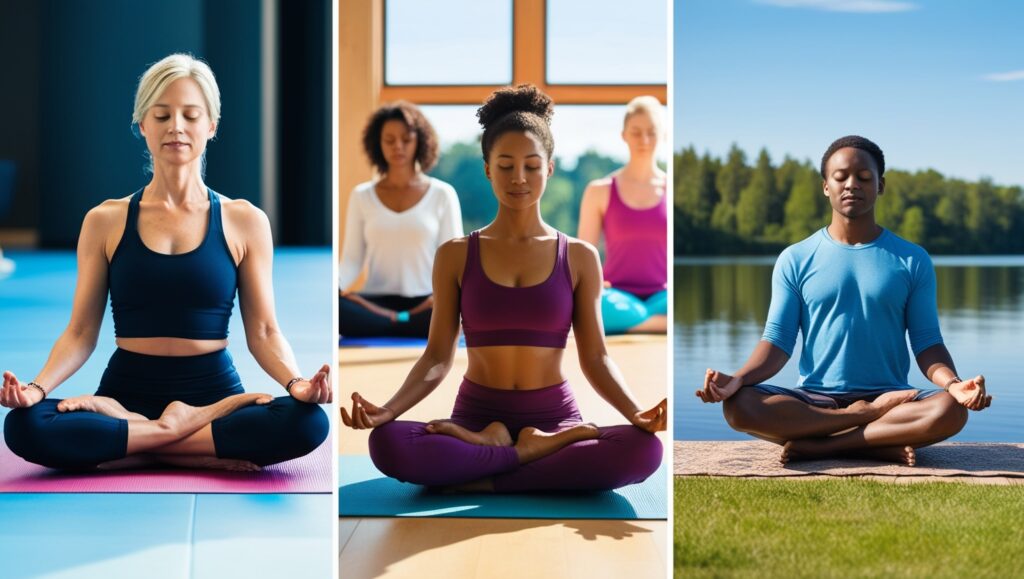
1. Traditional Meditation Practices
Traditional practices provide a foundation for meditation. Mastering these techniques can help you adapt them to your unique requirements later.
- Mindfulness Meditation: Focus on the present moment, often by concentrating on your breath or body sensations.
- Transcendental Meditation: Use mantras to transcend ordinary thought and achieve relaxation.
- Loving-Kindness Meditation: Cultivate compassion and positive emotions by repeating affirmations.
2. Meditation for Athletes
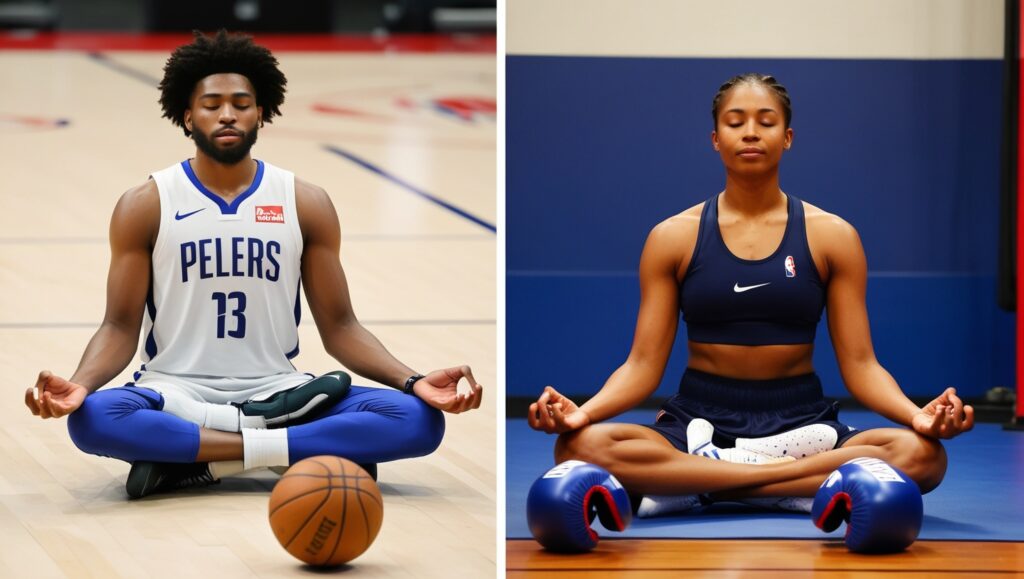
Athletes often rely on meditation to enhance their performance by improving focus and reducing anxiety.
- Basketball Players: Meditation helps players tune out crowd noise and reduce game-day pressure, enabling better performance.
- Boxers: Meditation helps control aggression and enhance stamina, allowing fighters to maintain composure under pressure.
3. Guided Meditation
Guided meditation sessions, often available through apps or coaches, can help beginners focus and reduce distractions in busy environments.
4. Customized Meditation Techniques
Create your own meditation routine by modifying traditional methods. For instance:
- Combine visualization techniques with breathing exercises.
- Meditate with background sounds like nature or calming music to suit your environment.
Benefits of Meditation for Specific Environments
1. Meditation at Work
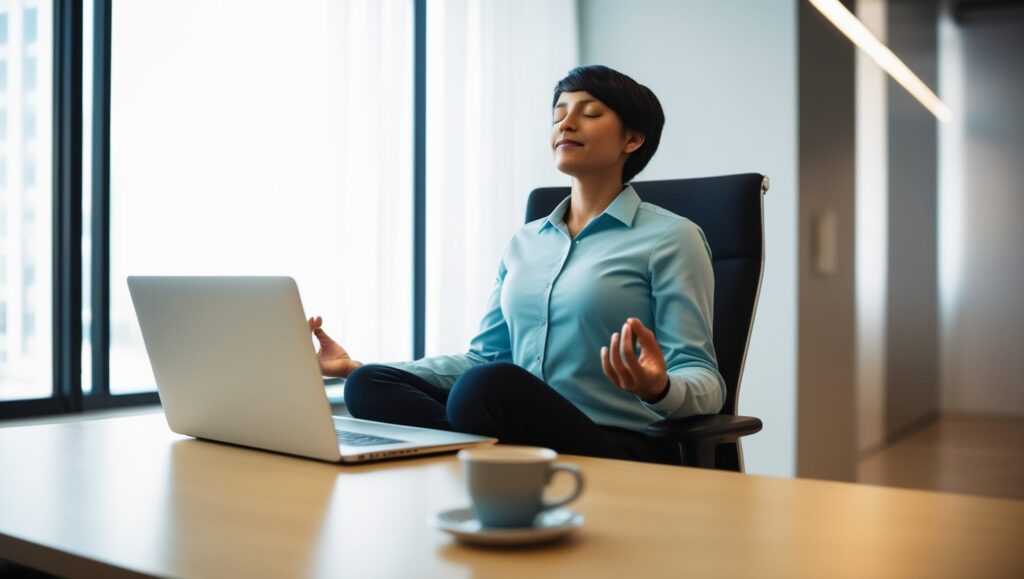
Performing short meditation sessions during breaks can help reduce workplace stress, improve focus, and boost productivity.
2. Meditation in the Gym
Female boxers and athletes use meditation to enhance concentration and stay calm in high-pressure gym environments.
3. Outdoor Meditation
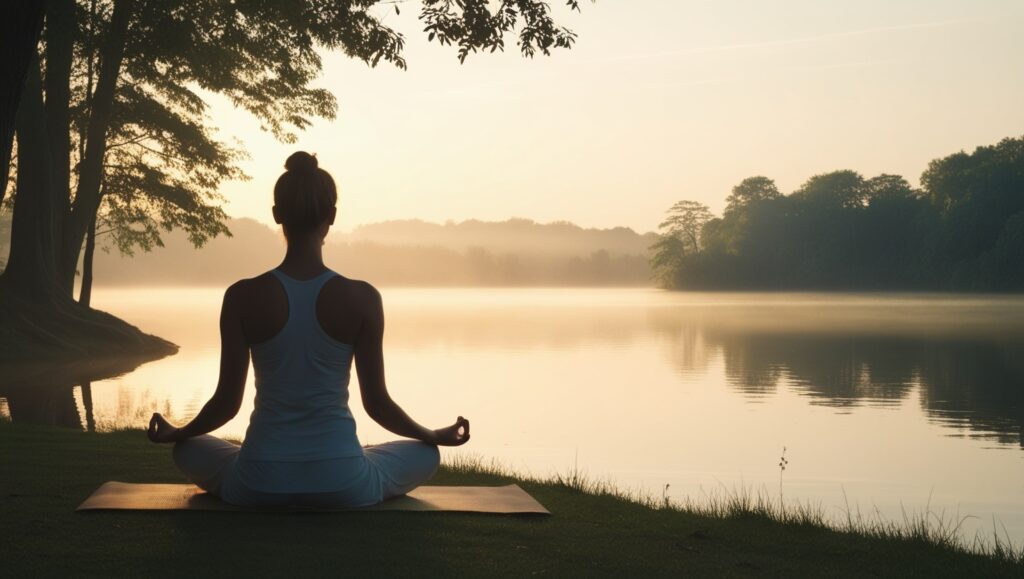
Natural settings like parks or beaches can provide an ideal backdrop for practicing mindfulness or visualization techniques.
How to Modify Meditation for Better Results
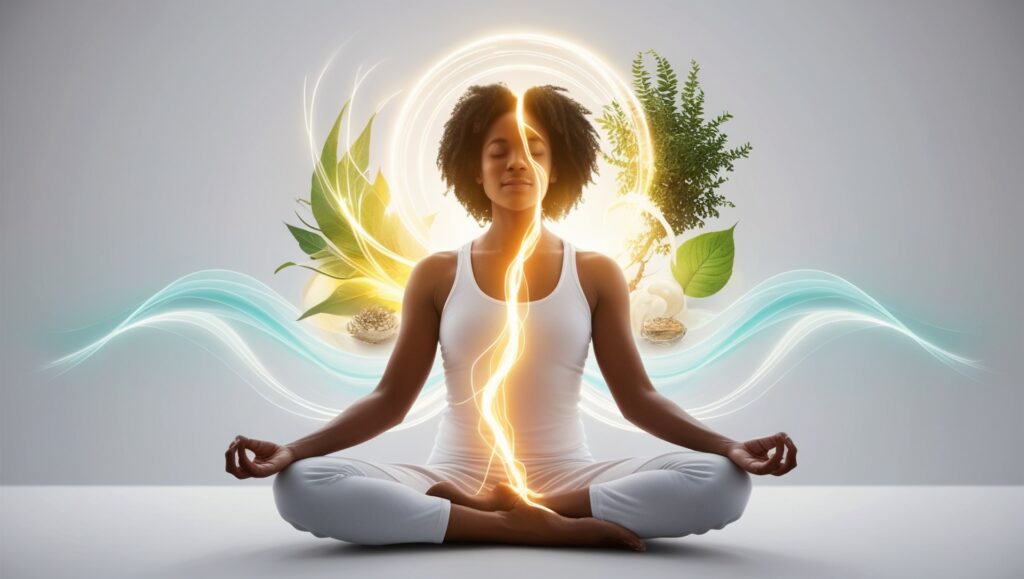
- Start with Basics: Master traditional meditation before adapting it to your preferences.
- Practice Regularly: Consistency is key to developing focus and concentration.
- Leverage Imagination: Use visualization to create an immersive meditation experience.
FAQs About Meditation Techniques
Q1: Can I create my own meditation routine?
Yes, once you’ve mastered the traditional techniques, you can adapt them to fit your lifestyle and preferences.
Q2: How long should I meditate daily?
Beginners can start with 5–10 minutes and gradually increase to 20–30 minutes per session.
Q3: What are the best meditation techniques for stress relief?
Mindfulness meditation and guided visualization are highly effective for reducing stress.
Q4: How does meditation benefit athletes?
Meditation improves focus, reduces performance anxiety, and helps athletes manage their emotions during competition.
Q5: Can meditation help with creativity?
Yes, meditation fosters a clear mind and enhanced imagination, which can improve creative thinking.
Conclusion
Meditation is a versatile practice that can be tailored to suit different environments and individual needs. By understanding its foundations, experimenting with techniques, and practicing regularly, you can harness its transformative power to achieve inner peace, enhanced focus, and a healthier mind. Whether you’re an athlete, a professional, or simply seeking clarity, meditation offers a path to better well-being.



